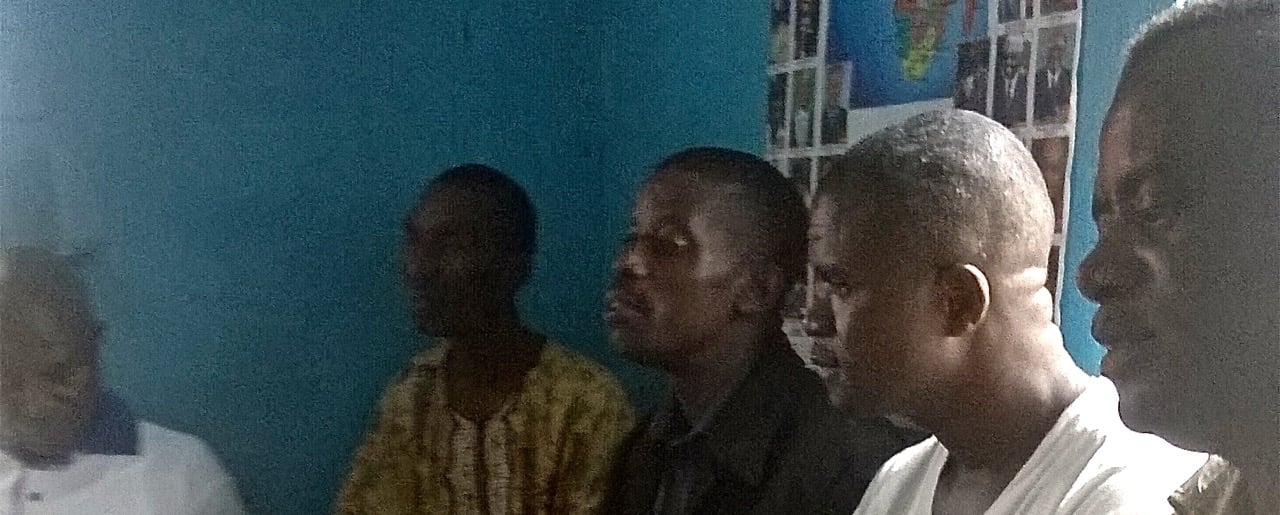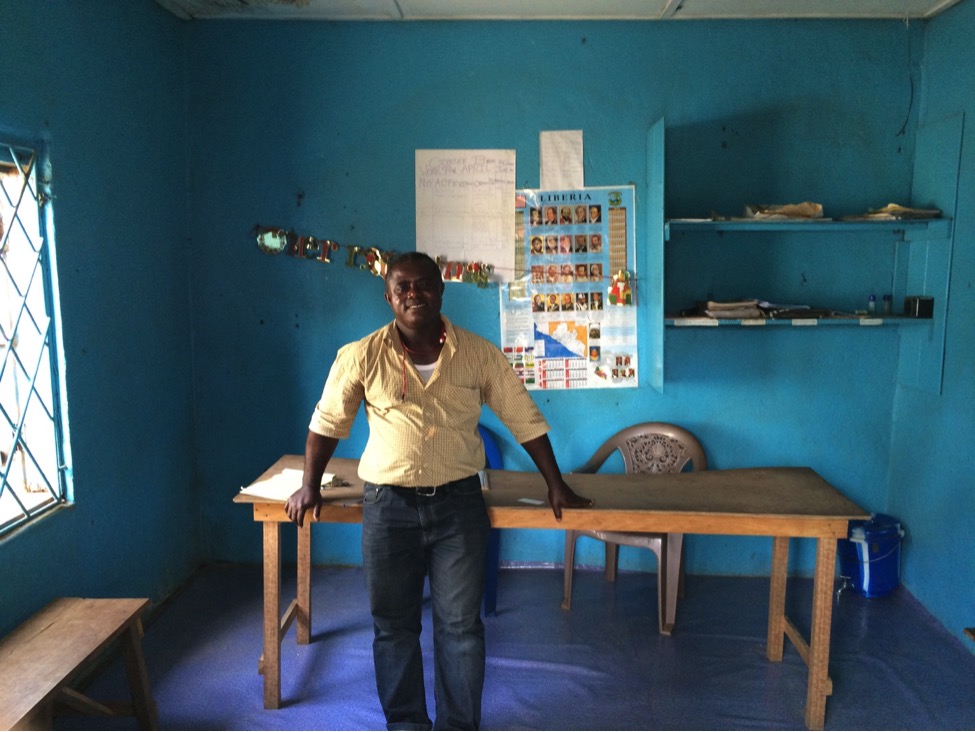NEWS
July 13, 2016

IN BRIEF
By: Beth Goldberg (Summer Resident Fellow at Accountability Lab Liberia) and John Kamma (Founder of Citizens Bureau for Development and Productivity, and Accountapreneur) The five mediators sat along the wall of the bright blue room, sweat beading in the stagnant Liberian heat as the office manager, Rockson, recalled a recent case: A 16 year-old girl was accused of witchcraft by her community for exhibiting “unusual behavior”, not unheard of in Liberia where belief in the supernatural is widespread. The girl was subsequently ostracized by her community, prohibited from attending school and church. The situation escalated when her parents were given [...]
SHARE
By: Beth Goldberg (Summer Resident Fellow at Accountability Lab Liberia) and John Kamma (Founder of Citizens Bureau for Development and Productivity, and Accountapreneur)
The five mediators sat along the wall of the bright blue room, sweat beading in the stagnant Liberian heat as the office manager, Rockson, recalled a recent case:
A 16 year-old girl was accused of witchcraft by her community for exhibiting “unusual behavior”, not unheard of in Liberia where belief in the supernatural is widespread. The girl was subsequently ostracized by her community, prohibited from attending school and church. The situation escalated when her parents were given notice to leave their house as a means to remove the girl from the community altogether. Her family refused; they had no relatives outside the community to turn to and no money to relocate. A heated stand-off ensued.
Mediators from the Citizens Justice Bureau were called in. Two mediators interviewed the girl, determining that the girl was healthy and normal, but possessed a strong, independent spirit that community elders had interpreted as witchcraft. They understood that the community needed to be convinced of her ability to integrate by an external, culturally legitimate intervention; one force in Liberian society up to such a task is the church. The mediators negotiated for the girl to stay at a church for a period of three months, during which time the community would “pray away bad spirits.” This solution actively involved all parties in a compromise that ultimately facilitated the peaceful reintegration of the girl with her home community.
Such community mediation services are in high demand in a country with a notoriously corrupt judicial system and high tensions after 14 years of bloody civil war. Liberians’ fear of a return to conflict has spiked in recent weeks with the official withdrawal on June 30th of UNMIL, the United Nations peacekeeping operation that was charged with stabilizing Liberia for the past 13 years. In light of this insecurity, a criminal justice practitioner noted, “The Citizens Bureau is on the right path and is necessary in the wake of UNMIL drawdown from Liberia.”
 John Kamma, the soft-spoken, optimistic founder of the Citizens Bureau has been a police officer in Liberia since 2005. In efforts to improve access to justice services, he launched the Citizens Bureau in 2009. With the support of the Accountability Lab, the Bureau has expanded to three offices in Liberia that support 13 trained mediators who together have resolved over 150 disputes since 2014. The mediators focus on mediating misdemeanors and family conflicts – ranging from unpaid loans to domestic violence – before the conflicts can escalate through retaliation or police involvement.
John Kamma, the soft-spoken, optimistic founder of the Citizens Bureau has been a police officer in Liberia since 2005. In efforts to improve access to justice services, he launched the Citizens Bureau in 2009. With the support of the Accountability Lab, the Bureau has expanded to three offices in Liberia that support 13 trained mediators who together have resolved over 150 disputes since 2014. The mediators focus on mediating misdemeanors and family conflicts – ranging from unpaid loans to domestic violence – before the conflicts can escalate through retaliation or police involvement.
The lack of affordability, accountability, and timeliness of the formal justice system discourages many citizens. It is unfortunately a common saying in Liberia, that “no money means no justice” when seeking redress through the formal system. In the shantytowns around Monrovia, this problem is particularly acute because citizens do not have the means to pay police and courts.
Police require citizens pay them for transportation, documentation fees, and bribes for considering the case, on average demanding $15 USD. Court fees add an additional $114 USD on average, including legal writ fees, lawyer fees, bond and transportation. This sum is often the difference between rent for a year and receiving attention for an injustice. Trust in police is further degraded by displays of force and arbitrary abuses of power by security and justice sector officials. For example, officials frequently fail to acquaint citizens with their rights under the Miranda law at the time of an arrest.
On a recent Saturday, Mr. Kamma toured the densely populated squatter settlement known as the Glass Factory community, informing residents that his mediators were at their disposal. The community’s reception was warm and the most popular aspect of Mr. Kamma’s services was universal – a free alternative to the police. For citizens of communities like Glass Factory, police and court fees are impossible to pay, driving many to pay smaller bribes for release from police custody and to resolve conflicts informally at home.
Nelson, one of the Bureau’s mediators, explained that “if you and I go before a court, and I have more money, I win and you’ll be sitting in prison tomorrow. If you come to a mediator, we don’t want a penny.”
The Citizens Bureau is committed to providing free mediation services in high density, low-income informal settlements. In efforts to increase the accessibility of justice services, the door to the one room Bureau in Logantown is kept open seven days a week for community members to walk in. Increasingly, the mediators receive calls referring cases from citizens and community chairpersons, as mobile devices proliferate in many of the poorest communities of Liberia. Mr. Kamma’s normally soft-spoken demeanor shifts and becomes animated as he describes the importance of this work: “when this office is closed [the community] feels disenfranchised. This is their only alternative, their only way to justice.”
This is the first of a two-part blog series on the Community Justice Teams in Logantown, Liberia – stay tuned for more tomorrow!
